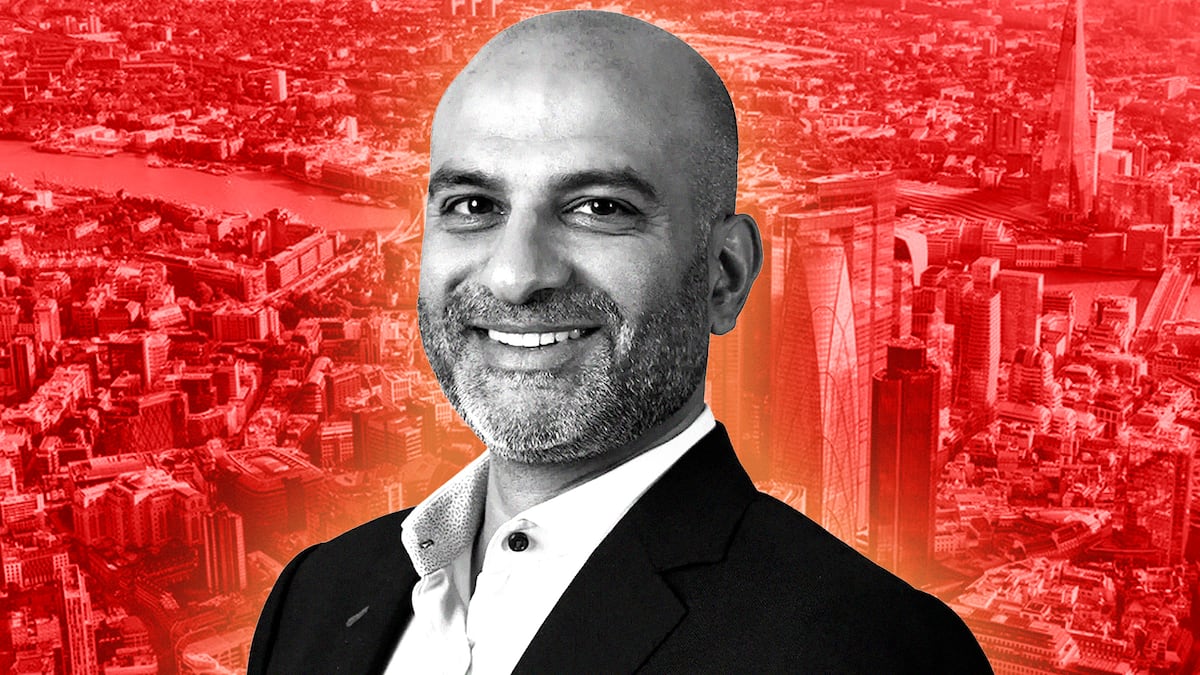- Standard Chartered is one of the first investment banks to offer spot Bitcoin and Ethereum to customers.
- The move appears to compete with Zodia Markets, a business backed by the bank.
- Zodia Markets CEO Usman Ahmad says the move will provide more choice for traders.
Six years ago, Ahmad Usman embarked on an experiment.
The banking veteran set up a crypto trading outfit called Zodia Markets with investment from Standard Chartered, one of the UK’s biggest lenders.
The idea was to leverage Standard Chartered’s vaunted prowess in currency markets into a crypto trading desk that would attract institutional clients such as large hedge funds.
On paper, it looked like a perfect marriage of an established market player and a racy new asset class.
Yet last week, Standard Chartered threw a spanner in the works when news broke that the bank had set up another spot crypto trading desk under its own nameplate.
That’s exciting — banks have been reluctant to offer spot crypto at scale, as regulation threatens to make it costly for them to hold the assets.
Still, at first glance, the move threatened to sow confusion among clients — why have two spot crypto trading desks?
Yet Usman told DL News all is well. “There’s no competition or conflict per se — we just want to provide clients with multiple options in terms of how they execute trades,” Usman said.
Investment professionals who deal with Standard Chartered aren’t so sure there’s no confusion.
They agree, however, that the two desks won’t be going after the same clients.
‘There’s no competition or conflict per se — we just want to provide clients with multiple options in terms of how they execute trades.’
— Usman Ahmad
Large institutional clients like banks and asset managers are wary of the considerable counterparty risks in crypto trading.
They’d prefer to deal with a heavily-regulated bank like the 83,000-employee, £19 billion market cap giant Standard Chartered.
Smaller clients that operate outside of the bank’s familiar scope can go to Zodia Markets, a person familiar with the bank’s trading operations told DL News.
Standard Chartered will appeal to “bigger ticket clients, higher value,” said the person, who asked not to be named discussing the companies publicly. “With Zodia, there are smaller clients, higher turnover, perhaps those in jurisdictions that the bank doesn’t want to touch.”
Standard Chartered did not respond to requests for comment from DL News.
Awkward fit
The episode demonstrates how crypto trading can still be an awkward fit for traditional financial institutions.
Even though mainstream banks have long dealt with crypto derivatives such as Bitcoin futures contracts and more recently spot price ETFs, wariness around the assets remains.
Part of that is due to international banking standards-setters, who are considering applying a punitive charge to banks holding crypto on their balance sheet.
In press reports, Standard Chartered said it had been “working closely with our regulators to support demand” for spot Bitcoin and Ether.
Ahmad said it is not unusual for capital markets businesses to operate parallel trading desks.
The interdealer broker TP Icap, for instance, is made up of Tullet, Prebon, and Icap, which all competed before they were consolidated under one brand.
Put another way, Standard Chartered’s crypto desk and Zodia can be compared to Audi and Volkswagen — both are owned by the Volkswagen Group but the former caters to luxury buyers and the latter to middle-class drivers.
For his part, Ahmad said Zodia and Standard Chartered are not going after one anothers’ clients. He added that Zodia is finding clients in peripheral markets, such as Turkey and the Middle East.
Zodia operates in tandem with its parent in other ways.
A choice for traders
In contrast to Standard Chartered’s dealer desk model, Zodia Markets offers an execution model known as “matched principal,” which means it stands between the counterparties in a transaction and uses its own inventory of cryptocurrencies to execute the deal.
That liquidity is provided by Standard Chartered’s foreign exchange, or FX, desk.
While Standard Chartered need a whole day to settle trades — known in the industry as T+1 — Zodia is able to settle almost immediately thanks to the speed of blockchain tech.
At the same time, Zodia Markets functions outside of Standard Chartered’s traditional footprint and offers clients a wider array of digital asset access, Ahmad said.
Customers who want the comfort of a big bank can go to the new Standard Chartered desk, and those traders accustomed to dealing with more crypto-centric platforms can opt for Zodia Markets.
While duplication usually augurs complexity and management headaches, Ahmad says the dual model will offer traders a choice.
“It allows existing clients to access digital assets in a way they are used to doing it,” Ahmad said.
Reach out to the author at joanna@dlnews.com.


